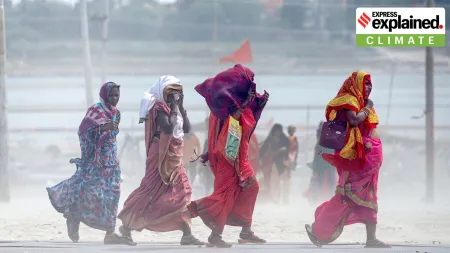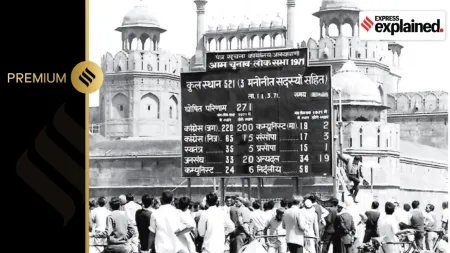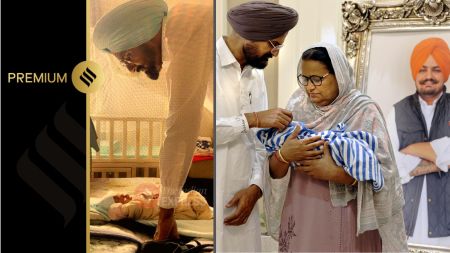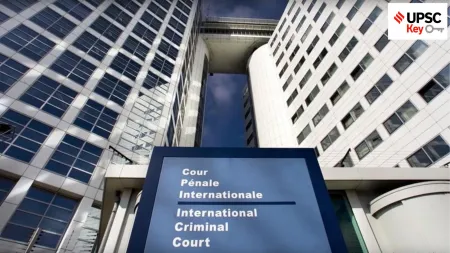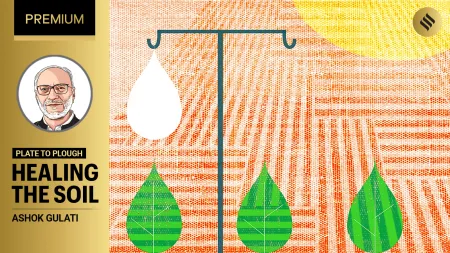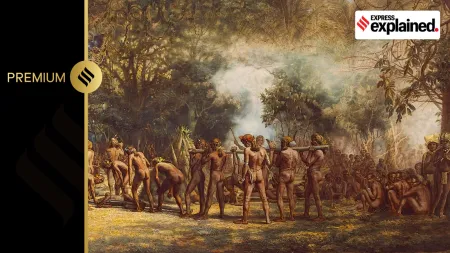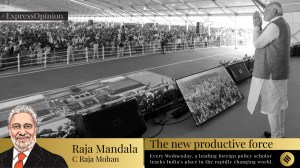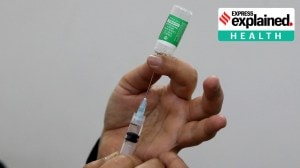- India
- International
Explained: Why the race for a Covid-19 vaccine is an unprecedented sprint
Why has the coronavirus pandemic spawned one of the hottest vaccine races in history? The Indian Express delves into the details.
 At least 26 potential Covid-19 vaccine candidates are in various stages of human trials (Getty Images)
At least 26 potential Covid-19 vaccine candidates are in various stages of human trials (Getty Images)
The moment China made the genetic code for the SARS-CoV-2 virus available in January, hundreds of companies and academic institutions rushed to develop a vaccine that would create an immune response against it. Today, with Covid-19 having spread across the world, even ravaging some countries, over 160 potential vaccines (that the World Health Organisation knows of) are in various stages of testing.
The Indian Express delves into the details to understand why this pandemic has spawned one of the hottest vaccine races in history.
How many vaccines are being tested against Covid-19?
According to the World Health Organisation, at least 26 potential Covid-19 vaccine candidates are in various stages of human trials, while another 139 are still undergoing animal tests to understand whether they can be safely injected in humans.
However, experts tracking this space feel the number is conservative. This is the first time that a virus has garnered this much interest, they say. “The actual number of candidates will be as much as three times what WHO has listed,” said vaccine expert Dr Davinder Gill, also the former CEO of Hilleman Laboratories.
Surely enough, Covid-19 has attracted the largest number of vaccine candidates for a pandemic in the last few decades. Another interesting aspect to note is the speed with which the development has taken place. The effort hasn’t been limited to traditionally tried and tested technologies, but newer platforms as well that have never made it to market before.
READ | Clinical trials of Russian vaccine completed

“Before anyone could grow the virus in tissue culture, there were sections of industry and academia preparing a vaccine using newer technology like nucleic acid-based platforms,” said Dr Vineeta Bal, Visiting Professor, IISER, Pune. “Everybody is trying different approaches and some are seeing positive developments. Like Moderna–this is the first time that its vaccine has reached the stage it has reached,” she said.
“Some of these are bleeding-edge technology. They’re the newest of the new,” added Gill.
The pandemic with the largest number of vaccine candidates
|
Epidemic/Pandemic/Disease with major burden |
First Outbreak/Discovery |
Number of Vaccine Candidates |
|
Covid-19 (SARS-CoV-2) |
Late 2019 |
165 |
|
MERS (MERS-CoV) |
Early 2012 |
48 |
|
Swine Flu (H1N1 Influenza A) |
Early 2009 |
30* |
|
SARS (SARS-CoV) |
Late 2002 |
33 |
|
Malaria (caused by Plasmodium parasite) |
Late 1800s |
37 |
|
Tuberculosis (Mycobacterium tuberculosis bacteria) |
Late 1800s |
29 Advertisement |
But, why are there so many vaccine candidates in this race?
When SARS spread to over two dozen countries in 2003, more than 8,000 people were infected, of which a little over 770 died. The World Health Organisation (WHO) announced in July that the epidemic had been contained before any vaccine candidate could successfully complete human trials.
The swine flu pandemic of 2009 spread to over 200 countries and officially killed around 18,500 people. However, estimates from the Centres for Disease Control and Prevention peg the actual number of deaths anywhere between 151,700 and 575,400 in the first year of the pandemic. In this pandemic, a vaccine was developed within the first year using a decades-old technology that allowed companies to repurpose older flu vaccines and adjust them for the newer strain of the influenza virus.
Yet, it has been over seven months since the Covid-19 outbreak began in China and over four months since it was declared a pandemic. In this time, over 200 nations have reported infections, entire countries have administered lockdowns and over 680,000 people have died of the virus.
“I feel like every manufacturer feels they need to contribute during this time because the spread of this virus is unprecedented. We have not seen any recent epidemic that has spread to every single country in the world as quickly as this,” said Gill.
READ | Oxford-AstraZeneca vaccine shows progress: What does this mean in Covid-19 fight?
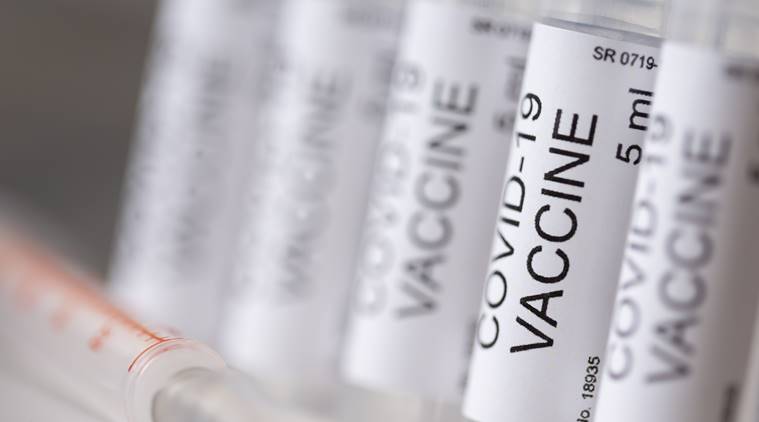 While there are hundreds of vaccine candidates for Covid-19 right now, it is unlikely that most will make it through the finish line of the global race. (Source: Getty Images)
While there are hundreds of vaccine candidates for Covid-19 right now, it is unlikely that most will make it through the finish line of the global race. (Source: Getty Images)
The opportunity for early movers with vaccine solutions in this space is therefore immense, given the population affected and the economic consequences of the pandemic on countries, according to experts.
Keeping countries under a prolonged lockdown has its own economic cost, but opening up without adequate protection also can deal a financial hit to nations.
“For Covid-19, it is said that about 60 per cent of the population should become immune to the infection; if it happens naturally, the illnesses and deaths would be very high, with severe pressure on the society and economy,” said Professor Indrani Gupta, head of the Health Policy Research Unit (HPRU) at the Institute of Economic Growth in Delhi. “While calculations are required, it will be cost-effective to have a vaccination and avoid the direct and indirect costs of deaths and illness,” she said.
The regions affected also play a major role in the number of candidates that have entered the race, according to some experts. “You have to remember that the chances of this virus spreading are much higher than other coronaviruses. This gives not only a larger market to vaccine companies, but also encourages them to enter the space because of the kind of countries that are impacted,” said Bal.
“The practice that has been observed over the years is that, if developed countries are affected, technological development for a solution is often fast-tracked. Here, you have countries in the West that are affected,” said Bal. “By comparison, if you look at the development of vaccines for diseases of developing countries like TB and malaria, which have been around for much longer, there isn’t the same level of enthusiasm,” she added.
Also read | Vaccine would be a reality by end of year or start of 2021, says top US expert Anthony Fauci
“I think the potential is actually huge. If you make the assumption that the vaccine works across (all age groups and comorbidities)…you’re looking at an unprecedented, blockbuster, multi-billion-dollar potential for this product,” according to Gill.
For newer entrants into this space, the pull is the potential of making their mark in this space. “In this mix of hundreds of companies, some, of course, are seeing this as an opportunity to build the capacity, raise capital and get their name out there,” said Gill. According to him, the race may lead to at least 5-6 vaccines in the market in the near future.
📣 Express Explained is now on Telegram. Click here to join our channel (@ieexplained) and stay updated with the latest
Top 10 contenders in the race for a Covid-19 vaccine
|
Candidate |
Sponsor |
Progress |
|
AZD1222/Covishield |
University of Oxford-AstraZeneca |
Phase III |
|
Coronavac |
Sinovac |
Phase III |
|
(Two candidates) |
Sinopharm |
Phase III |
|
mRNA-1273 |
Moderna-NIAID |
Phase III |
|
BNT162b2 |
Pfizer-BioNTech |
Phase II/III |
|
Ad5-nCoV |
CanSino Biological Inc-Beijing Institute of Biotechnology |
Phase II |
|
RBD-Dimer |
Anhui Zhifei Longcom Biopharma-Institute of Microbiology (Chinese Academy of Sciences) |
Phase II |
|
N/A |
Chinese Academy of Medical Sciences |
Phase I/II |
|
Ino-4800 |
Inovio Pharma-International Vaccine Institute |
Phase I/II |
|
N/A |
Osaka University-AnGeS-Takara Bio |
Phase I/II Advertisement |
Why is it important to have so many vaccine candidates against Covid-19?
While there are hundreds of vaccine candidates for Covid-19 right now, it is unlikely that most will make it through the finish line of the global race.
“Having a diversity of vaccine candidates reduces the chance of failing with all of them…having a diversity of approaches to studying them increases the chances that we can learn more about them,” said Marc Lipsitch, professor in the Department of Epidemiology at the Harvard T.H. Chan School of Public Health, last week during a vaccine symposium organised by the Indian Council of Medical Research.
Having several vaccine candidates also reduces the chances of governments and the public being exploited. “Having a diversity of candidates reduces the possibility, once again, of bullying by sectors within a country or by…countries against one another because there are more vaccines with more different distribution channels,” he added.
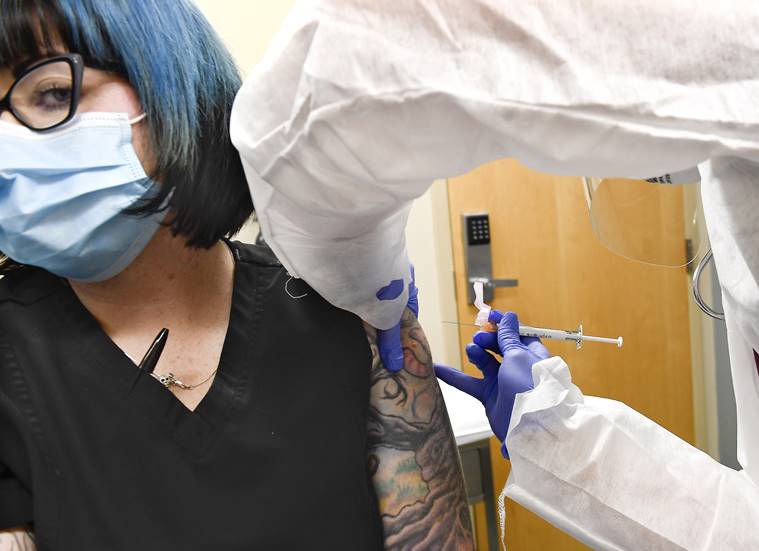 A volunteer being injected as the world’s biggest study of a possible COVID-19 vaccine, being developed by the National Institutes of Health and Moderna Inc., gets underway in Binghamton, N.Y. (AP Photo/Hans Pennink)
A volunteer being injected as the world’s biggest study of a possible COVID-19 vaccine, being developed by the National Institutes of Health and Moderna Inc., gets underway in Binghamton, N.Y. (AP Photo/Hans Pennink)
The vaccines give countries a better and more cost-effective chance at tackling the pandemic. “A vaccine is one of the best ways of tackling an infectious disease. Covid-19 has not abated and cases are increasing rapidly in many countries,” said Gupta.
“In poorer countries, waiting for herd immunity by allowing infections to take place would be very costly. Avoiding infections (through) vaccination would be the best way to achieve the required herd immunity,” she said. Keeping in mind the need to reduce the costs of containing this pandemic, multiple candidates also increase the chances of a larger group of the population being covered.
“I think most experts agree that it’s unlikely that these vaccines are going to work across all age groups and comorbidities. We might see success, but we might see it in a subset of the subjects,” said Gill.
More Explained
EXPRESS OPINION
May 01: Latest News
- 01
- 02
- 03
- 04
- 05


